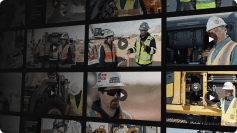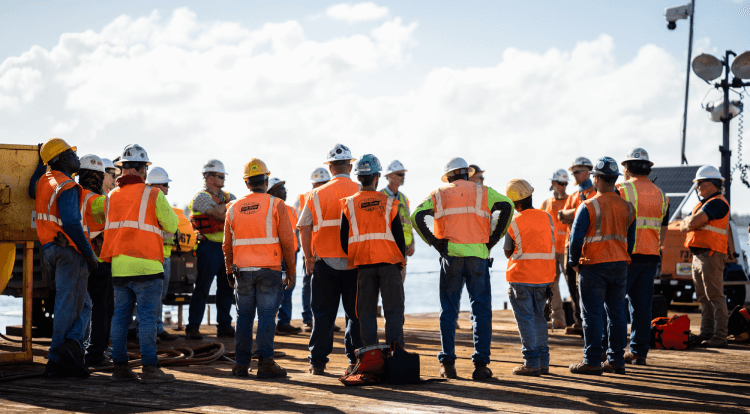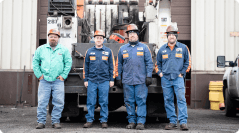The Importance of Field Engineering
Written by Jason Schroeder
January 26, 2023
In How to Become a Field Engineer, Jason Schroeder and Randy Blount talked about how the field engineering role develops individuals and why it is such an important part of the construction industry. Leveraging the field engineer position—whether it's the company or the individual who does the leveraging—can lead to professional success and personal fulfillment.
And fulfillment is key, according to Jason: "You're really going to be in a better spot in life. You're going to take care of your family better, you're going to have better health, you're going to have better emotional well-being, if you have success and fulfillment in anything that you do."
Field engineering can be one such fulfilling position in construction.
"Every single aspect of the training that you will receive, every single aspect of the position that you will perform in, every single aspect of what you do as a field engineer will help you throughout your life," Jason says.
Why? Great question. Keep reading to find out.
Opening the door to career fulfillment
For Jason, field engineering was where he realized his true calling to the Dirt World. One memorable morning on a job site, "I just looked up and I opened my eyes and I'm like, I love this position. I love construction. This is what I'm going to do."
Jason credits the experience of the rest of his career to that role as a field engineer: "And I'll tell you why. It's one word: learning. As a field engineer, you get to become a builder. As a field engineer, you get to form the foundation that will take you in any direction that you want to go in your career."
The things you can learn as a field engineer include personal organization, communication skills, interpersonal skills, how to deal with people, how to write effective emails, how to deal with inspectors, how to deal with leaders. You'll learn to run a good quality program and how to think through issues that arise.
"All of these things are included in the role of a field engineer, because you're responsible for frontline quality, frontline safety, and the layout and control of a construction project," Jason says. "If I had any admonition for you right now, it would be don't shortchange yourself, don't cheat yourself out of the years that you can spend in this fundamental builder role."
And your career path doesn't stop with the field engineering role: Field engineers in the dirt world can become project managers, superintendents, future executives, and future owners of companies.
Becoming addicted to learning
By spending time in a field engineering builder position, you can exponentially grow the rest of your career, whatever that ends up being. In construction, one of the best roles you can have for learning is that of the field engineer.
"If you want to get addicted to learning, if you want to get addicted to growth, if you want to get addicted to a rich mindset, you definitely want to come into the field engineering role," Jason notes. Field engineering offers opportunities—like experience in actually drawing and drafting and using Civil 3D—that other roles in construction do not.
Where else are you going to learn the fundamentals of quality control, which is the basis for so much of what happens on a construction project? Where else will you learn fundamentals like personal organization and how to delegate? Plus you'll develop perseverance and discipline. "All the noncognitive skills that it takes for you to be great," as Jason puts it.
"Do you want exponential growth in your career? Do you want, in construction, to take it to the next level? Do you want to be able to engage with a foreman or a worker or an owner and be like, I know that, I know that, I've had experience with that? Do you want those fundamentals?" Jason asks.
He adds, "If you do, then you want to take some time and you want to go work with survey or be a field engineer—because this is where the magic happens."
Takeaways
Just as with any building, a person needs a solid foundation to succeed. Why not take the time to master the skills you'll need, no matter where your Dirt World career may take you?
In order to discover your passion—and to develop that passion into a wonderful career—you want to get addicted to learning and addicted to growth.
A field engineering role can do more than put you onto a solid path. It can enable you to grow, both personally and professionally, in ways you may not have imagined possible. Open yourself to the learning opportunities that real-world application of your hard and soft skills can provide as a field engineer.













